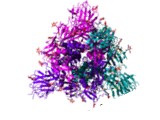Glycoproteins are proteins that possess covalently attached carbohydrate chains. These carbohydrates can vary in size and complexity, ranging from a few monosaccharide residues to more elaborate oligosaccharide structures. Glycoproteins play crucial roles in various biological processes, including cell recognition, signaling, and regulation of cell-cell interactions.
Functions of Glycoproteins
Glycoproteins fulfill a variety of essential biological functions:
- Cell Recognition: Glycoproteins on the cell surface play a key role in cell recognition and adhesion. Cell surface glycoproteins, such as integrins and selectins, are involved in interactions between cells and their environment.
- Signaling: They are involved in cell signaling, such as hormone receptors. Glycoproteins can influence signaling pathways by altering their glycosylated structures.
- Protection and Lubrication: Glycoproteins such as mucins are present in bodily secretions and fluids. They act as lubricants and protective barriers, playing a role in the protection of tissues and mucous membranes.
- Transport: Some glycoproteins, like transferrin, are essential for the transport of molecules in the blood. For example, transferrin transports iron throughout the body.
Clinical Applications of Glycoproteins
Glycoproteins have significant clinical applications:
- Biomarkers: Certain glycoproteins serve as biomarkers for the diagnosis and monitoring of diseases.
- Targeted Therapies: Glycoproteins are used in the development of targeted therapies.


